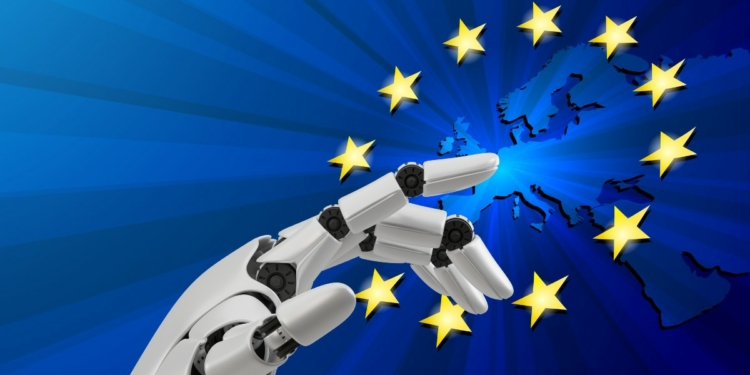The European Union is making headway in the enactment of the world’s inaugural AI laws. Engage in a casual discussion about this significant tech development.
Key Takeaways:
- The proposed AI Act by the EU Commission aims to regulate AI usage, including bans on real-time biometric surveillance and predictive policing.
- Tech companies, along with top AI scientists, are calling for internationally coordinated AI regulations.
- Despite potential resistance from EU countries regarding biometric identification limitations, the act presents a concrete response to burgeoning AI risks.
The European Union Takes Bold Strides Towards Pioneering Artificial Intelligence Legislation
As we watch the digital world evolve, European Union policymakers are striving to create a robust and comprehensive framework for artificial intelligence (AI). In a notable development, they have drafted an AI act that boldly calls for a complete ban on AI-based biometric surveillance and predictive policing systems.
Striking A Balance: EU’s Landmark Legislation on AI
This game-changing legislation, following its amendment on Wednesday, is the EU’s proactive response to concerns raised by experts about the catastrophic potential of AI. These fears equate the risk of unregulated AI to that of pandemics and even nuclear warfare.
The swift adoption of advanced AI models, such as Microsoft-backed OpenAI’s ChatGPT, is raising eyebrows. Industry titans, including Elon Musk of Tesla and Sam Altman of OpenAI, are advocating for international regulation of generative AI.
Spearheading the negotiations for the future AI Act is Member of the European Parliament, Brando Benifei. Benifei confidently suggests that the draft rules are a balance of fundamental rights and technological innovation, providing legal certainty to businesses. He highlights the significance of nurturing public trust in AI’s evolution and leading the global political conversation on AI.
H2: New Rules on the Horizon: The EU’s Stand on AI Usage
The EU’s bold vision for AI regulation includes prohibitions on “intrusive and discriminatory uses of AI systems”. This means a hard no to real-time and remote biometric identification, emotion recognition, and predictive policing based on profiling, location, or past criminal behavior.
The proposed legislation also seeks to restrict the arbitrary collection of facial images from social media or CCTV footage for creating facial recognition databases. Generative tools like ChatGPT would be expected to adhere to heightened transparency norms, such as divulging AI-generated content and revealing summaries of copyrighted data used for training.
Tech giants Microsoft and IBM have expressed cautious optimism about the draft AI rules, anticipating further refinement of the proposed laws.
A Clash of Views Over Biometric Usage
The issue of using biometrics, data relating to human traits, has triggered an intense debate, with some EU countries expected to resist limitations. The European People’s Party argues that such technology could be crucial in crime combat and counter-terrorism, as well as in finding missing children.
On the flip side, companies like Meta, owner of Facebook and Instagram, brush off concerns about AI’s potential risks. Meta’s chief AI scientist, Yann LeCun, asserts that AI essentially amplifies human intelligence.
The proposed laws classify AI systems that can influence elections and recommender systems employed by social media platforms with over 45 million users as high-risk.
The Future of AI: A Global Race Toward Regulation
The EU is eager to move swiftly, drafting rules that set a global standard. However, the detailed negotiation of the rules with the EU’s 27 countries remains before the draft can become law. Even if an agreement is reached by the end of the year, the legislation may not take effect until 2026, urging the EU to seek a voluntary interim pact with tech companies.
Thus, the EU’s endeavor to regulate AI represents a giant leap forward in technology legislation, potentially influencing global standards and stirring new-age scrutiny for years to come.
 Sections of this topic
Sections of this topic
















